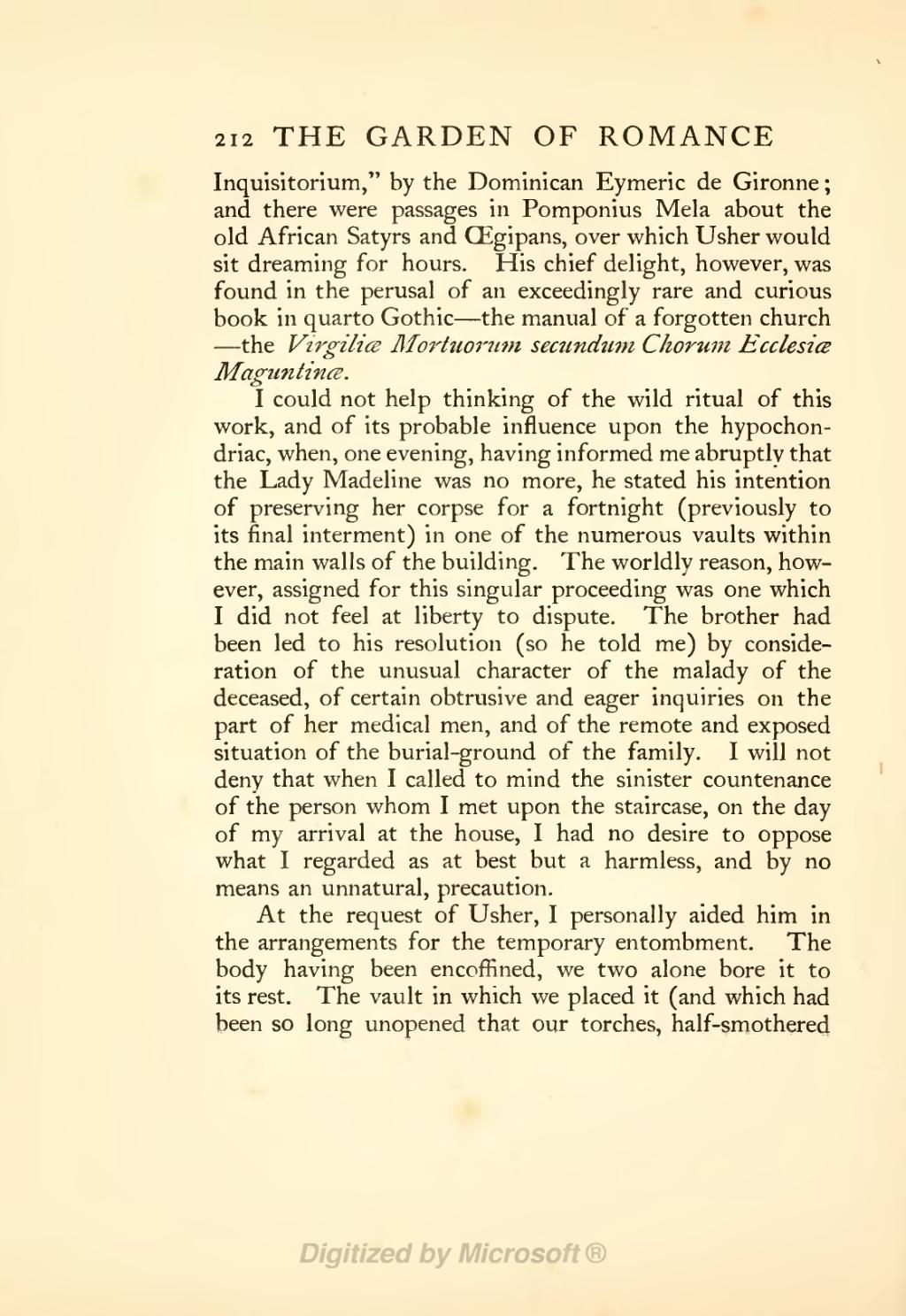Inquisitorium," by the Dominican Eymeric de Gironne; and there were passages in Pomponius Mela about the old African Satyrs and Œgipans, over which Usher would sit dreaming for hours. His chief delight, however, was found in the perusal of an exceedingly rare and curious book in quarto Gothic—the manual of a forgotten church—the Virgiliæ Mortuorum secundum Chorum Ecclesiæ Maguntinæ.
I could not help thinking of the wild ritual of this work, and of its probable influence upon the hypochondriac, when, one evening, having informed me abruptly that the Lady Madeline was no more, he stated his intention of preserving her corpse for a fortnight (previously to its final interment) in one of the numerous vaults within the main walls of the building. The worldly reason, however, assigned for this singular proceeding was one which I did not feel at liberty to dispute. The brother had been led to his resolution (so he told me) by consideration of the unusual character of the malady of the deceased, of certain obtrusive and eager inquiries on the part of her medical men, and of the remote and exposed situation of the burial-ground of the family. I will not deny that when I called to mind the sinister countenance of the person whom I met upon the staircase, on the day of my arrival at the house, I had no desire to oppose what I regarded as at best but a harmless, and by no means an unnatural, precaution.
At the request of Usher, I personally aided him in the arrangements for the temporary entombment. The body having been encoffined, we two alone bore it to its rest. The vault in which we placed it (and which had been so long unopened that our torches, half-smothered
